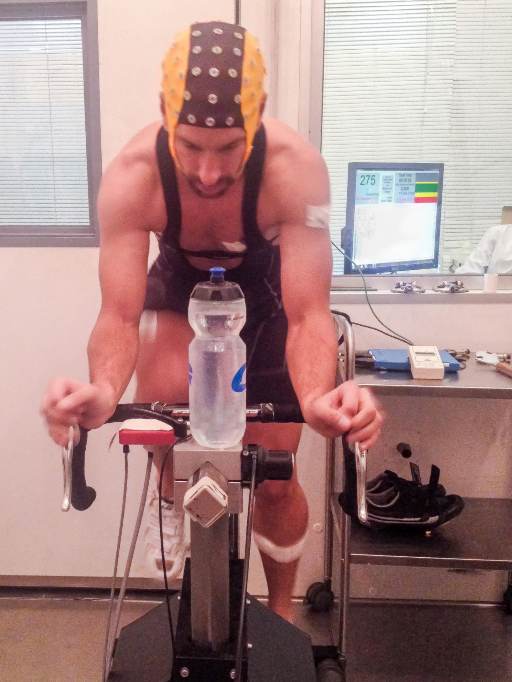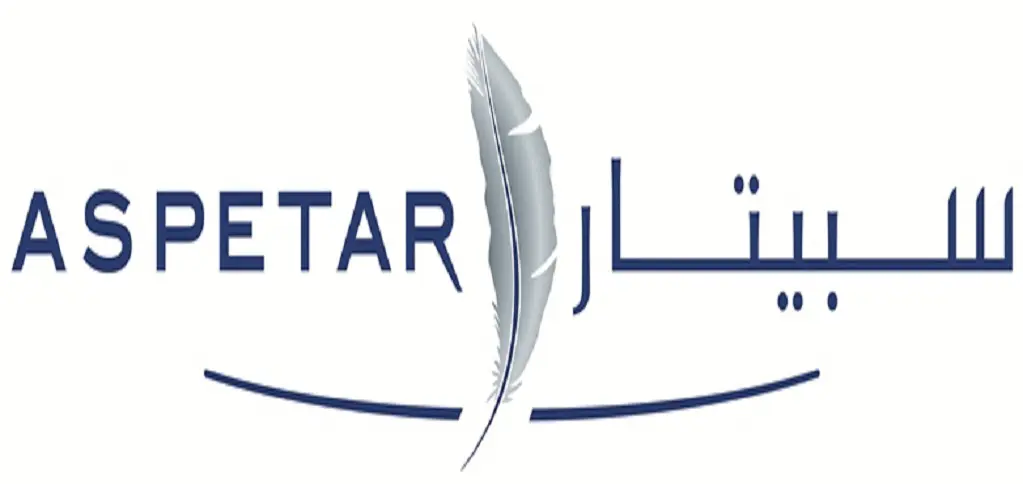Associate Professor Julien Périard, PhD (University of Canberra, Research Institute for Sport and Exercise) investigates how extreme environments shape brain function and endurance performance. Formerly at Aspetar Sports Medicine Hospital (Qatar), he led an EEG study of well-trained cyclists completing self-paced time trials in cool, hot, and hypoxic conditions. The work showed heat causes larger decreases in frontal/central alpha–beta activity than control, while hypoxia selectively lowers alpha, highlighting brain-region–specific changes linked to arousal and motor control. His current focus: using EEG to guide strategies—mental training, heat/altitude acclimation—to enhance focus, resilience, and performance.
Meet the Researcher

Associate Professor Julien Périard, PhD.
My name is Dr. Julien Périard and I currently work as an associate professor at the University of Canberra Research Institute for Sport and Exercise in Canberra, Australia. Previously, I worked at the Aspetar Sports Medicine Hospital in Doha, Qatar, which is dedicated to aiding athletes reach their full potential. My latest research at Aspetar, which appeared in the July 2017 issue of Acta Physiologica, examined cerebrocortical activity in well-trained cyclists as they exercised in cool, hot, and hypoxic conditions.
Background
Heat stress and acute hypoxic exposure are known to negatively influence endurance performance during exercise (Bergeson, 2014; Nielsen, Hales, Strange, Christensen, Warberg & Saltin, 1993; Santos-Concejero, Tucker, Myburgh, Essen-Gustavsson & Kohn, 2014). One of the potential pathways mediating the decrease in performance is a change in cerebrocortical activity resulting from the impact of such extreme environments. Research suggests that hyperthermia may lessen arousal (Nielsen, Hyldig, Bidstrup, González-Alonso & Christofferson, 2001) while hypoxia may alter neuronal transmissions (Peña & Ramirez, 2005). It is yet to be determined how hyperthermia and hypoxia influence the cerebrocortical activity during self-paced exercise. Our team therefore aim to explore the exact nature of the cerebrocortical response under normal (cool), hot, and hypoxic environments during self-paced exercise.
Method
Participating in this study were 11 well-trained male cyclists who volunteered to take part. The participants filled out a Medical History Questionnaire and a Physical Activity Readiness Questionnaire (PAR-Q) and had their height, weight and VO2max measured. The participants also performed a 375kJ baseline testing to become familiarised with the procedure. Environmental conditions during the baseline testing were 18°C and 40% relative humidity with an airflow of 12.5 km/h. Subsequently, they performed three 750 kJ self-paced time trials as quickly as possible under each environment. There was a 4 to 6 days interval between the time trials. The time trials were preceded by a warm-up in 20-22°C and 50% relative humidity. During the warmup the cyclists were equipped with sensors monitoring their heart rate and skin temperature. A rectal thermometer was also used to monitor internal temperature throughout the experiment. The participants wore a 64-channel waveguard™ original EEG cap for the entire duration of the experiment. A 64-channel eego™ sports amplifier was chosen for recording of data due to its small size and high mobility. Although extensive sweating occurred, it did not influence the quality on the EEG recordings.
The image below shows the setup of the experiment:

The environments of the time trials were as follows:
- Control/Cool: 18°C, 40% relative humidity, 12.5 km/h airflow.
- Hot: 35°C, 60% relative humidity, 12.5 km/h airflow.
- Normobaric hypoxic: 18°C, 40% relative humidity, FiO2 : 0.145, ~3000m, 12.5 km/h airflow.
During the time trials, data for skin temperature, internal temperature, oxygen uptake, heart rate, SpO2, and EEG were measured. Ratings of perceived exertion using the Borg scale and thermal comfort using the Bedford Thermal Comfort Scale (REF) were recorded at different times during the experiment.
Results
A larger decrease in alpha and beta activity was measured in frontal and central regions of the brain during self-paced exercise under hot conditions compared to control conditions. Secondly, alpha activity in the frontal and central areas was higher under control conditions than under hypoxic conditions, while beta activity under hypoxic conditions was similar to control conditions and higher than under hot conditions. An increase in alpha and beta activity was visible in the primary somatosensory cortex at the onset of exercise under control and hypoxic conditions, whereas this was only the case for beta activity under hot conditions. Shortly after the increase in alpha and beta activity, a decrease in alpha and beta activity was visible in the primary somatosensory cortex and motor cortices under all three environments. At the same time, alpha activity was lower under hot circumstances than during the control trial.
Conclusion
To conclude, there are several changes in alpha and beta activity between the three environments during self-paced exercise. Our team have suggested that these changes in alpha and beta activity that occurred in specific brain areas are associated with particular functions associated with those areas of the brain. Thus, research such as ours provides information about which brain functions are altered during self-paced exercise in different environments. These results may provide a starting point for athletes and their coaching staff to focus on, in particular, how to enhance arousal, mental focus, and cognitive resilience during exercise to improve performance.
Based on the EEG data, we were able to gain insight into the cerebrocortical activity involved in self-paced exercise. This project thus shows that EEG measurements could prove very valuable in sport science. It allows researchers to investigate cognitive processes and how these are influenced by environmental factors. Moreover, by monitoring EEG activity, we can gain insight into how certain training tools or external factors could boost focus and concentration in order to improve athletic performance.
For now, I am interested in examining how responses may change as a result of targeted mental or psychological interventions, and whether heat and altitude acclimation training could benefit athletes under such extreme conditions.
These results provide a great example of how EEG can lead to new insights in sports science and may inspire other researchers to further examine the important link between physical and physiological measures in order to improve the performance of athletes.
If you would like to know about this study, please consult: Périard, J.D., De Pauw, K., Zanow, F. & Racinais, S. (2017). Cerebrocortical activity during self-paced exercise in temperate, hot and hypoxic conditions. Acta Physiologica, 10.1111/apha. 12916.
References

Heat stress and thermal strain challenges in running. Journal of Orthopaedic & Sports Physical Therapy, 44 (10), 831-838.
by Bergeron, M.F.

Human circulatory and thermoregulatory adaptions with heat acclimation and exercise in a hot, dry environment. The Journal of Physiology, 460(1), 467-485.
by Nielsen, B., Hales, J.R.S., Strange, S., Christensen, N.J., Warberg, J. & Saltin, B.(1993)

Brain activity and fatigue during prolonged exercise in the heat. European Journal of Physiology, 442(1), 41-48.
by Nielsen, B., Hyldig, T., Bidstrup, F., González-Alonso, J. & Christofferson, G.R.J.(2001)

Hypoxia-induced changes in neuronal network properties. Molecular Neurobiology, 32(3), 251-283.
by Peña, F. & Ramirez, J. (2005)

Cerebrocortical activity during self-paced exercise in temperate, hot and hypoxic conditions. Acta Physiologica, 10.1111/apha.12916.
by Périard, J.D., De Pauw, K., Zanow, F. & Racinais, S. (2017)

Greater performance impairment of black runners than white runners when running in hypoxia. International Journal of Sports Medicine, 35(10, 809-816.
by Santos-Concejero, J., Tucker, R., Myburgh, K.H., Essen-Gustavsson, B. & Kohn, T.A.(2014)
